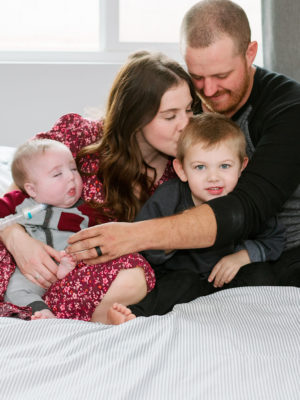A genetic counselor is a medical professional and a patient advocate who is trained to counsel families about genetic diagnoses and their implications, a CHOC Children’s medical geneticist says.
Genetic counselors can determine the risk of a genetic disorder to other family members in future pregnancies, and they provide comprehensive information, education and resources about that particular diagnosis. They do so by examining a family’s medical history and working with other specialists to aid in making a diagnosis, says Dr. Neda Zadeh.
“Genetic counselors often manage and provide support when a family is encountering a new diagnosis, which can be a challenging and difficult situation. They really offer help to a family that may not have been expecting a genetic diagnosis,” Dr. Zadeh says. “Our job as a team is to be there to support them.”
Though available to anyone, genetic counseling can be a helpful tool in family planning, especially for people with a family history of a chromosomal or genetic condition.
Those who might seek prenatal genetic counseling include couples that have experienced multiple miscarriages; couples older than 40; and couples undergoing in vitro fertilization whose embryos can be screened for genetic abnormalities that may run in their family.
In a prenatal setting, a genetic counselor meets with a couple that may have a family history of a genetic condition, or a sign of a problem from a prenatal ultrasound. The counselor develops a risk assessment and provides the couple information on all screening and diagnostic testing options. The counselor also discusses possible outcomes and reproductive options in a neutral, non-directive way, she explains.





